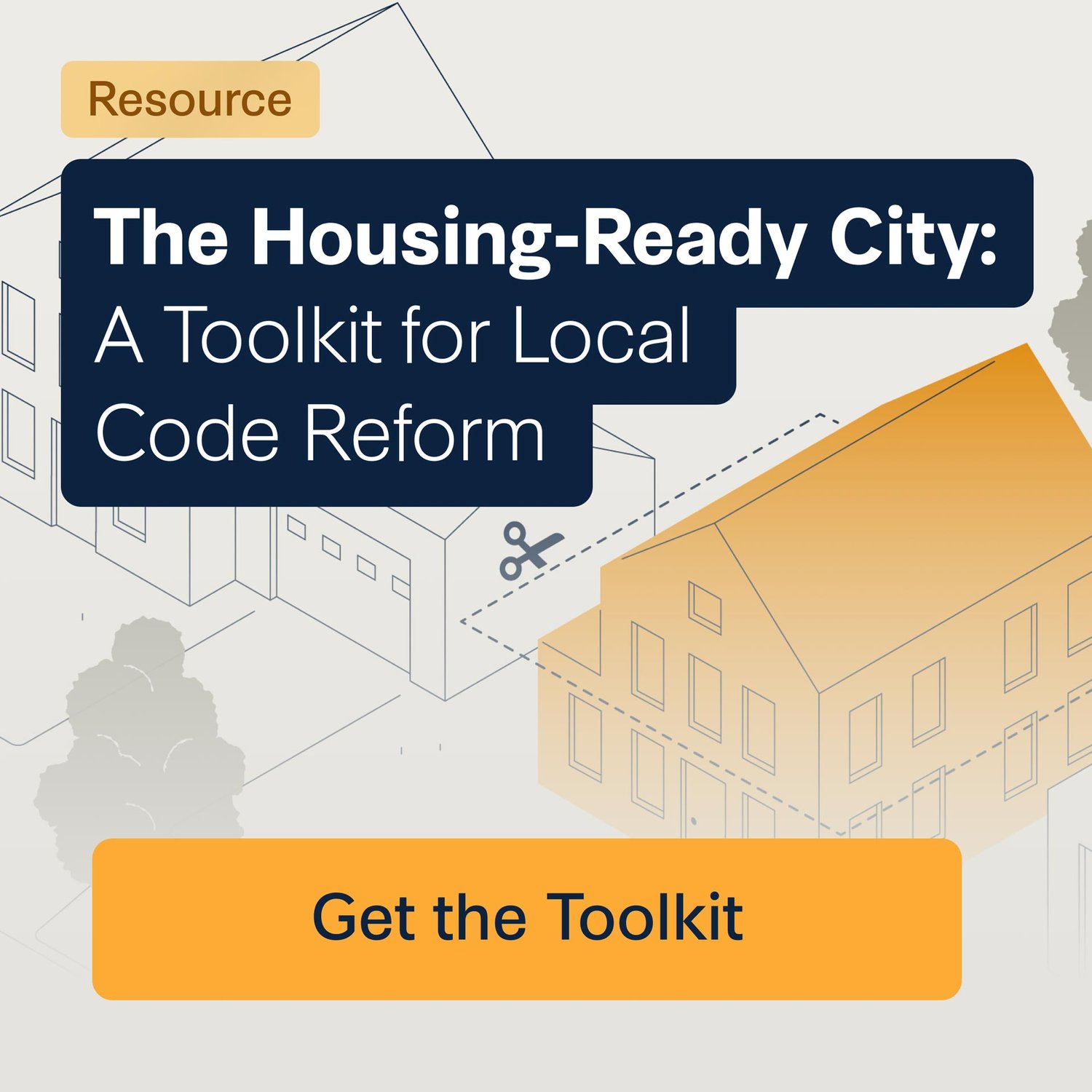How One Bill is Trying to Keep Texas Affordable
Texas isn’t exactly known for a housing shortage. With an average of 7.6 permits per 1,000 residents over the past five years, the Lone Star State builds more than most. And it’s not just leapfrog subdivisions on the edge of town—nearly half of the units permitted in the boom year of 2022 were apartments.
But even in Texas, affordability isn’t guaranteed. Local governments often impose large minimum lot sizes, requiring homeowners to buy 5,000, 10,000, or even 20,000 square feet of land just to build a single house. “If Texas is going to build enough housing for the next generation of homeowners, it will have to reduce minimum lot sizes,” M. Nolan Gray noted in his blog, The YIMBY City Planner.
Land can account for as much as a third of the price of a new home, he explains. If a minimum lot size mandate forces new lots to be twice the size a homebuyer would otherwise choose—say, from 2,500 to 5,000 square feet—it can drive up costs by 15% or more. That’s why Gray is excited about a new bi-partisan bill in the Texas Senate: SB 15.
If passed, SB 15 will not only roll back arbitrary, excessive lot size requirements–it’ll keep homeownership in reach for current and future Texans.
Lessons from Houston
Houston already demonstrated what’s possible. In 1998, the city reduced minimum lot sizes within its I-610 loop from 5,000 square feet to just 1,400. The result? A surge of small-lot single-family homes and townhouses, creating homeownership opportunities for over 100,000 families. Recent studies have shown that these newly-legalized townhouses are 43% more affordable than conventional single-family homes.
SB 15 would build on Houston’s success by reducing minimum lot sizes across Texas cities. According to an FAQ from Texans for Reasonable Solutions, this could increase the zoned capacity for single-family housing in Dallas from 26,000 to 120,000 homes. In Fort Worth, it could grow from 4,700 to 26,000 homes. More starter homes mean more affordability—not just from increased supply, but also because smaller homes are inherently cheaper to build and buy.
A Bipartisan, Broad-Based Coalition
Unlike many housing fights, SB 15 isn’t just backed by developers and realtors—it has built a uniquely Texas-style coalition. The bill’s lead sponsor is a Republican who genuinely believes in the policy, and the Lieutenant Governor has made it a priority. At the same time, three Democratic co-sponsors and the Texas Young Democrats have signed on in support.
A range of industries are on board, from affordable housing groups and homebuilders to major employers like Amazon and local chambers of commerce. One of the more surprising and interesting supporters, according to Gray, is The Texas Farm Bureau. Their argument: the more housing we build in and around cities, the less we leech into Texas farmland. This messaging has helped bring rural Republicans into the fold—after all, they do want to protect working and natural lands.
Just as importantly, SB 15’s champions are making the case in terms that resonate beyond policy circles. Instead of drowning the public in planning jargon, they’re highlighting what matters most: more starter homes, more affordable options, and a better shot at homeownership for the next generation.
Most people don’t care about zoning terminology, but they do care about whether their kids can afford a home of their own. “If you don’t believe me, walk outside and ask the first person you see about reducing minimum lot sizes. If they don’t immediately walk away, try asking them about starter homes, and expect a much warmer reaction. Starter homes invoke families, opportunity, and apple pie,” Gray adds. “Who could oppose that?”
If SB 15 passes, Texas could cement itself as a national leader in pro-homeownership zoning reform—proving that smarter land use isn’t a partisan issue, but a practical one.
Texas isn’t alone in facing these challenges. Communities across the country are grappling with outdated zoning laws that drive up housing costs and limit opportunities for homeownership. Whether you’re an advocate, a local leader, or just someone who wants to see more affordable options in your city, the first step is understanding the policies that shape our neighborhoods. Then, it’s time to take action.
Strong Towns’ Housing-Ready Toolkit is designed to help you take action. It breaks down complex zoning reforms, provides real-world case studies, and offers practical steps for making your community more housing-friendly. Check out the toolkit today and start pushing for more productive housing policies where you live.






